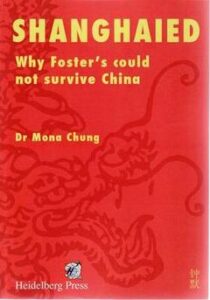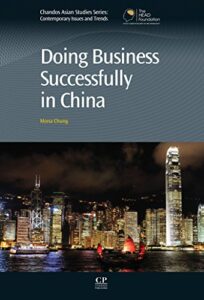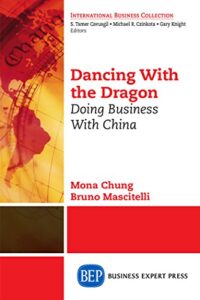Shanghaied Why Foster’s could not survive China

Shanghaied: Why Foster’s could not survive China analyses how cross-cultural barriers impact the success of Australian companies doing business in China. The conclusions from three years of research have enabled the author to publish three major contributions that will help organisations find the right strategies in planning, negotiation, management, and marketing. Failure to address cultural differences will incur what are now identified in the business world as cultural costs. To avoid these huge costs, the project must start with a quality background study on the cultural parameters influencing the operation.
Doing Business Successfully in China
Despite the overwhelming importance of the Chinese economy to the success of Western economies, there has yet to be an examination of why Western companies have had difficulties in doing business with the Chinese. A significant barrier that companies have difficulty to overcome is the effective communication with their Chinese counter parts. This major impediment is caused by no understanding of the cultural differences between the Chinese and Western business cultures. This book offers the solution to this problem: the bi-cultural personnel.
The first book presented by a true bi-cultural consultant and researcher who has depth knowledge in the understanding of both the Australian and Chinese markets, culture and more importantly the behavioural pattern of people from both sides of the businesses.
Provides a totally new perspective for business managers and entrepreneurs to find out how to avoid the same fate as has befallen so many failed enterprises.
The new perspective is to highlight the acceptance of cultural differences as the focus for devising and implementing successful strategy.
Doing Business in China: Getting Ready for the Asian Century
Although this book has a specific focus on Australian firms doing business in China, the important and unique contribution this book makes will help you and anyone in an organization that is considering doing business in China. China maintains a high growth economy and is currently the second largest in the world. This book, which includes results from research interviews conducted with business executives from 40 organizations, will assist in preparing to do business in China. This book takes you through the various elements associated with doing business in China, including the opportunities that are available and the obstacles that organizations can face, supported by data from real businesses internationalizing to China. It examines key areas including the foreign direct investment and trade framework, Chinese culture, political and legal frameworks, intellectual property regulations, motivations for internationalization, market entry strategy, and human resource management issues.
Dancing With The Dragon: Doing Business With China
This book looks at a number of contemporary issues in relation to the current role China plays in trade investments, especially outward investments, a fairly new phenomenon in Australia, Africa, and Europe, three major strategic destinations for China. Through Eurozone crisis, Chinese investments, and migration into Europe, the authors paint a new picture of the world with China, the dragon dancing in the centre of the stage with rotating dancing partners. They show a new perspective on the China-US relationship, especially through the case of Huawei, the new Chinese telecommunication giant who is consistently challenging the position of CISCO commercially and now politically. This book adds another tool to the tool box of those who are aiming to continue dealing, trading, and working with China and the Chinese.






